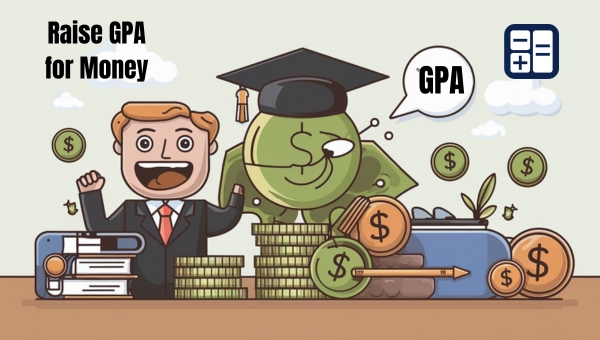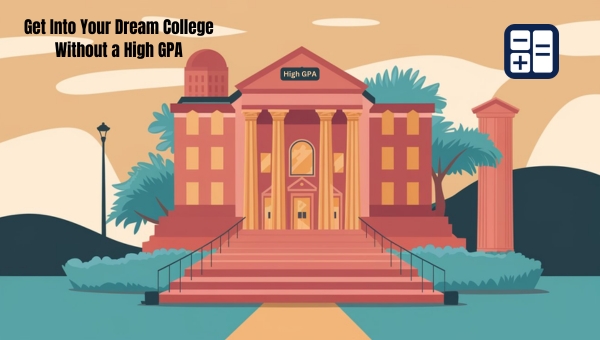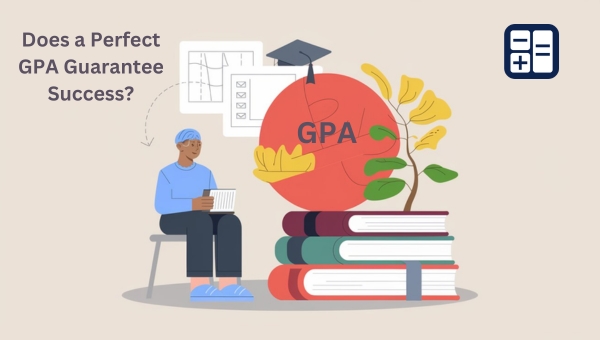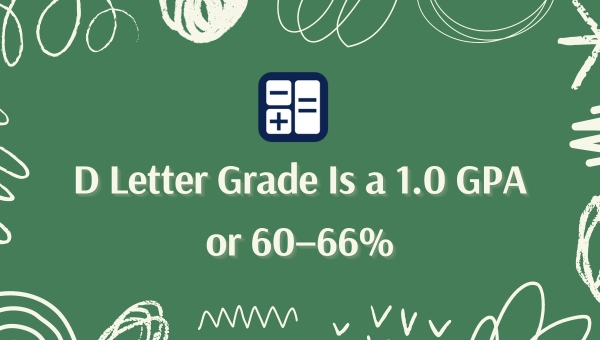GPA and Financial Aid Impact on Student Loans: Best Guide

Getting around the world of student loans can be challenging, particularly when GPA and financial aid are involved. We will examine the impact of your GPA on federal aid, grants, and scholarships in this post.
We’ll also explore the consequences of low academic performance and provide tips on managing your academic progress. Lastly, we’ll discuss alternatives and solutions if your GPA drops. By the end, you’ll have a comprehensive understanding of how to keep your financial aid and avoid pitfalls. Ready to unlock the secrets? Dive in!
Comprehending GPA in Relation to Financial Assistance
Understanding how GPA relates to financial assistance is crucial for students navigating their educational journey. Grade Point Average (GPA) is a numerical representation of a student’s academic performance, typically on a 4.0 scale. A higher GPA not only reflects better academic achievement but also significantly impacts financial aid eligibility.
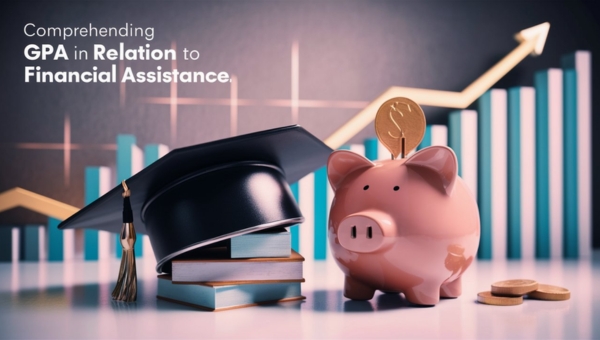
Financial aid comes in various forms, including scholarships, grants, and loans. Scholarships and grants are often awarded based on merit, which usually includes maintaining a specific GPA. Federal student aid programs also consider GPA as a criterion for eligibility, ensuring that students are making satisfactory academic progress.
Private loans, while primarily based on creditworthiness, may also weigh a student’s GPA as part of their decision-making process.
Therefore, maintaining a strong GPA can unlock broader financial support opportunities, reducing the burden of student loans. It’s important to stay informed about the GPA requirements for different types of financial aid to ensure continued eligibility.
Impact of GPA on Financial Aid
The connection between a student’s GPA and financial aid is a crucial aspect of funding higher education. A higher GPA can open doors to various financial aid options, while a lower GPA might close them. Understanding this relationship is essential for students aiming to minimize their student loan debt. Let’s dive into how GPA influences different types of financial aid.
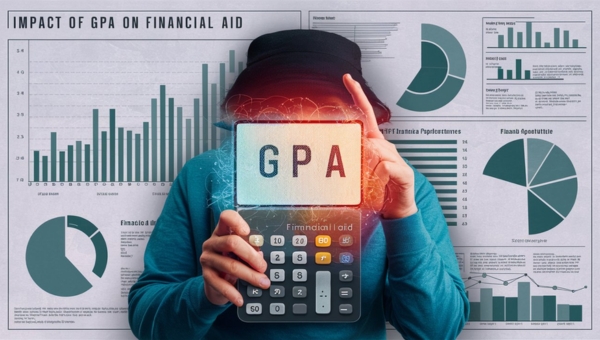
Scholarships and Grants
Maintaining a certain GPA is often a requirement for many scholarships and grants. Here are a few points to consider:
- Merit-based scholarships typically require a high GPA for eligibility.
- Renewable scholarships may require students to maintain a specific GPA to continue receiving funds.
- Institutional grants often have GPA requirements to ensure students meet academic standards.
- Competitive scholarships might prioritize applicants with exceptional GPAs.
- Need-based grants can also have academic performance criteria.
Federal Student Aid
GPA plays a significant role in qualifying for federal student aid programs. Here’s how:
- Federal Pell Grants can be affected by academic performance.
- Federal Work-Study programs may require students to maintain satisfactory academic progress.
- Direct Subsidized Loans and Direct Unsubsidized Loans often have GPA requirements.
- State-specific aid might also factor in GPA for eligibility.
- Federal Supplemental Educational Opportunity Grants (FSEOG) could be impacted by GPA.
Private Student Loans
When it comes to private student loans, a student’s GPA can influence their ability to secure funding. Key points include:
- Lenders may consider GPA as part of their assessment for loan approval.
- Higher GPAs can potentially lead to better loan terms and interest rates.
- Academic performance can affect the perceived risk for private lenders.
- Co-signers might be more willing to assist students with strong GPAs.
- Scholarship-linked loans sometimes require maintaining a specific GPA to remain eligible.
Navigating the impact of GPA on financial aid requires attention to detail and a proactive approach. By understanding these elements, students can better manage their academic performance and financial aid opportunities.
Consequences of Low GPA
Having a low GPA can significantly affect your financial aid status. This section delves into the serious repercussions that may arise from poor academic performance. Let’s explore how a low GPA can lead to loss of financial aid eligibility and the potential requirement to repay scholarships or grants.
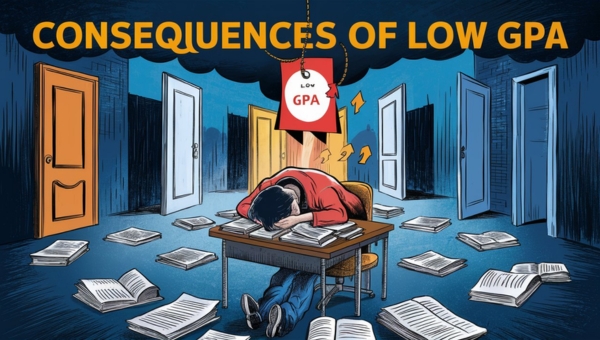
Loss of Financial Aid Eligibility
A low GPA can result in losing eligibility for various types of financial aid, including federal aid, scholarships, and grants. Most financial aid programs have minimum GPA requirements that students must meet to continue receiving support.
Falling below these standards can lead to immediate suspension or reduction of financial aid. Maintaining a strong GPA is critical to ensure continuous financial support throughout your academic journey.
Repayment of Scholarships or Grants
In some cases, students may have to repay scholarships or grants if they fail to meet the required GPA criteria. These financial awards often come with specific conditions, including maintaining a minimum GPA.
If a student’s academic performance drops, they might be required to return the funds they received. This can be a significant financial burden and can complicate their educational plans further. Therefore, it’s essential to understand the terms and conditions tied to any financial aid received.
Managing Academic Progress
Keeping up with academic progress is essential for maintaining financial aid. Here, we’ll break down what you need to know about staying on track academically and what to do if you hit a bump in the road.
Maintaining Satisfactory Academic Progress (SAP)
To keep receiving financial aid, you must meet the requirements for Satisfactory Academic Progress (SAP). These requirements usually include:
- Maintaining a certain GPA: Typically, a minimum GPA of 2.0 on a 4.0 scale.
- Completing a specific percentage of attempted courses: Often, you need to complete at least 67% of the courses you attempt.
- Finishing your degree within a maximum time frame: This is usually 150% of the program’s length, so for a four-year degree, you have up to six years.
What To Do If You Fail a Class
Failing a class can be stressful, but there are steps you can take to manage the situation and retain your financial aid:
- Consult with an academic advisor: Discuss your options and the impact on your academic progress.
- Consider retaking the class: Many institutions allow you to retake a class to replace a failing grade.
- Utilize tutoring services: Seek extra help to improve your understanding of the subject.
How to Appeal SAP Decision?
If you find yourself not meeting SAP standards, you can appeal the decision to regain your financial aid:
- Gather documentation: Collect any relevant documents that can support your case, such as medical records or letters from advisors.
- Write a clear appeal letter: Explain your situation, what caused the academic difficulties, and how you plan to improve.
- Submit your appeal on time: Ensure you meet any deadlines set by your financial aid office.
Alternatives and Solutions
When traditional financial aid is no longer available, students need to find alternative solutions to continue their education without undue stress. Below are some effective strategies to consider.
Exploring Alternative Funding Options
When traditional financial aid is not an option, there are several alternative funding methods available:
- Private Scholarships: Many organizations offer scholarships based on various criteria, such as community service, specific skills, or unique personal circumstances.
- Crowdfunding: Platforms like GoFundMe can help raise money from friends, family, and even strangers to cover educational expenses.
- Employer Tuition Assistance: Some employers offer programs that reimburse tuition costs for courses related to your job.
- Work-Study Programs: These programs allow students to work part-time while studying, helping to offset educational costs.
Retaking Classes
Retaking failed classes can significantly impact your GPA, but it’s essential to weigh the pros and cons:
- Pros:
- GPA Improvement: Retaking a course and earning a better grade can boost your GPA.
- Better Understanding: A second attempt provides another opportunity to grasp the material fully.
- Cons:
- Time-Consuming: Retaking classes extends the time needed to complete your degree.
- Additional Costs: You may incur extra tuition fees, which can be a financial burden.
Seeking Academic Support
Improving academic performance is crucial for maintaining financial aid. Here are some resources that can help:
- Tutoring Services: Many schools offer free or low-cost tutoring to help students understand difficult subjects.
- Study Groups: Joining or forming study groups allows for mutual support and shared knowledge.
- Academic Counseling: Academic advisors can provide personalized strategies to improve your grades and help you stay on track.
By exploring these alternatives and solutions, students can navigate the challenges of maintaining financial aid and academic progress more effectively.
FAQs
What happens if your GPA falls below 2.0 financial aid?
If your GPA falls below 2.0, you may lose eligibility for certain types of financial aid, including scholarships and grants. It usually results in needing to meet specific conditions to regain your aid.
Why would I be denied a student loan?
You might be denied a student loan due to a low credit score, insufficient GPA, or incomplete application. Additionally, failing to meet the lender’s requirements can lead to denial.
How does a low GPA affect financial aid?
A low GPA can reduce your eligibility for scholarships, grants, and sometimes federal aid. It may also affect your ability to secure private student loans, requiring you to find alternative funding methods.
Conclusion
Understanding the GPA and financial aid impact on student loans is crucial for every student. A strong GPA can open doors to scholarships, grants, and favorable loan terms, while a low GPA can jeopardize financial aid eligibility and lead to potential repayment issues.
By staying informed and proactive, students can navigate these challenges effectively and secure the financial support they need for their education.
To sum up, keeping a good GPA is essential for maintaining financial aid and minimizing student loan debt. If you found this information helpful, explore more insightful articles on our site to guide your academic and financial journey.
